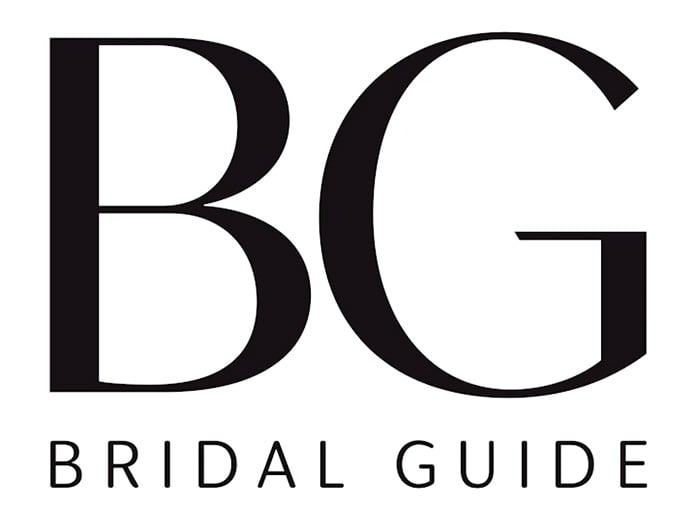All the basics you need to know before you start shopping for THE dress, from finding a shop to the right type of undies to wear.
By: Rachel Jacoby
The wedding gown you select will probably be the most meaningful —and expensive—piece of clothing you’ll ever own. Therefore, shopping for your gown can be not only a highly-charged emotional experience, but also a serious financial commitment. Check out our top tips for keeping your cool when getting the hottest gown around.
Do Your Homework
Before you start to shop, take the time to study any bridal publication available to you—both articles and advertisements. Review the websites of as many designers as possible. Make a list of the designers you like best, the specific styles that appeal to you, and the retailers who are authorized to sell the gowns you prefer in your local area.
Time It Right
Acquiring a wedding gown can be a lengthy process--anywhere from off the rack to six months--so it's important to allow enough time for it. For example, custom gowns (a popular option for many brides-to-be) require from six weeks to six months for delivery, depending upon the designer. Add an additional month for any necessary alterations--you're going to need it! If time is of the essence, consider purchasing a formal gown off-the-rack—available through many full service bridal and department stores.
Your Budget
Whatever your budget, spending hours or days of your time going from store to store to save $50 or even $100 on your gown purchase may not necessarily be worth the frustration or the time you invest. Your time and energy have a price tag too! Most importantly, you should select a store where you feel comfortable and one with an excellent reputation for service which will provide you with a stress-free shopping experience.
- Full-Service Bridal Stores: Approximately 75% of Bridal Guide readers purchase their gowns at a full service bridal store or salon. (Roughly 12% purchase their gown at a department store, and the rest wear an heirloom, sew their own or have their gown custom made.) The vast majority of bridal stores - including some of the largest and most prestigious in the country - are family-owned businesses. The atmosphere and services offered by these stores can be as different as the personalities of the people who own them. Most bridal stores are owed and operated by people who live within the community they serve so shopping at these stores isn't at all like shopping at a department store owned by an anonymous corporation. You can expect a higher level of personal attention and service—and in return the store staff will expect a higher level of courtesy from you. All full-service stores provide a qualified, professional, trained consultant to assist you in shopping for your gown. Most stores require some form of customer registration before a fitting room is assigned to you. The information requested during the registration process can range from a few basic questions printed on an index card to an entire battery of questions that may fill two or more pages. This registration is meant to identify the specific needs of each customer, which will allow your consultant to determine how she can best respond to all of your needs. If you're simply shopping for the best price for a gown you've already selected at another store, share this information with the consultant. It will save time for both of you. Many full-service stores (and department stores too) offer a selection of traditional and contemporary bridal gowns that can be purchased off-the-rack as a supplement to their custom-order gown inventory. In addition, many stores offer a collection of sample or discontinued styles that may be purchased off-the-rack at only a fraction of the original retail price. Any full-service bridal store should provide a one-stop shopping experience for the bride- to-be, offering a selection of veils and other accessories in addition to gowns. While there is absolutely no obligation to purchase your entire ensemble at any one store, it's best to see yourself in a gown you're considering with all the trimmings before you make your final decision. Some stores go far beyond catering solely to the bride's apparel needs. Many offer an impressive selection of bridesmaid and social occasion dresses as well as dresses that are ideal for mothers of the bride and groom. Some also offer tuxedo rental and men's formal wear and accessory retail items. Virtually all full-service bridal stores require appointments in advance. However, most will do whatever possible to accommodate you without an appointment. It's a good idea always to call the store in advance of your visit. If possible, schedule your appointment on a weekday. Weekends usually are hectic at full-service stores. A weekday appointment will allow your consultant to spend as much time as possible assisting you.
- Bridal Salons: If you take the level of personal attention at a typical full-service bridal store several steps farther, you'll arrive at the bridal salon experience. (Don't be confused by the fact that many full-service bridal stores include the word "salon" as part of their name—what we're referring to here is those stores that operate in the European tradition of couture salons.) Few true bridal salons exist in this country, though there usually is at least one in each major metropolitan area. This is not a casual shopping experience. You'll be required to schedule an appointment in advance so you can meet with the salon's consultant. Taking the term full-service to the highest level, the consultant will discuss your wedding plans with you in great detail. Based upon the information you provide, she'll help you to select a designer appropriate to your personal style and best suited to the type of wedding you're planning. Bridal salons do not display gowns on racks. Instead the salon consultant will pre-select gowns and bring them to you for consideration. The consultant also may suggest custom changes to the styles available at the salon. In addition to designers' dresses, custom design services are available through many salons, and some also offer bridesmaid dress styles for your review. Some engaged women thrive in the salon environment while others feel that it's extremely frustrating.
- Department Stores: Only a few major stores maintain full-service bridal departments. In essence, department stores that sell bridal gowns operate much like independently owned full-service bridal shops. Like other full-service bridal shops, some department store bridal shops offer custom-ordered gowns exclusively while others offer custom-ordered as well as off-the-rack merchandise for your consideration. The advantage of shopping at a department store is that you have the store's reputation behind any purchase. Unlike shopping in the rest of the store, a prescheduled appointment often is necessary. Call ahead to make arrangements.
Sizing
The size charts for bridal apparel DO NOT match the size charts for the clothes you wear every day; they also fluctuate from one designer to another, so don't expect consistency. Consultants at full-service bridal stores and salons will help you to identify the size that most closely matches your measurements from the size chart for the designer you've selected. If her recommendation shocks you, it's reasonable to ask to see the chart yourself. It's unlikely that your measurements will perfectly match the chart; the goal is to order the dress as close to right as possible and then make alterations to adjust it perfectly. A rule of thumb to follow? Go up two sizes. (Example: If you wear a 6, try a 10.)
Virtually any dress can be made smaller but few can be expanded an entire size, so never order a size smaller in anticipating of losing weight. We cannot stress this enough! (Also, your consultant will warn you that you shouldn't custom-order a gown based upon the way a sample gown fits. Sample gowns are tried on so often that a size 10 can stretch to fit a size 12 or even a size 14.
Custom-Ordered Gowns
Custom-ordered gowns are ordered by the store from the designer as soon as the sale is completed. Many (but not all) custom-ordered gowns are available with custom change possibilities—you might choose to change the sleeves, the neckline, the fabric or lace. These changes can completely modify the overall appearance of the gown. Naturally, the bridal store will establish a fee for each change. These fees should be indicated on your contract (check out the fine print) with the store and, like the gown itself, usually require a 50% deposit when the gown is ordered.
A tentative delivery date will be scheduled for your custom-ordered gown. The delivery date should be specified on your contract when your dress is purchased. It's a good idea to specify a date after which delivery isn't acceptable to you. If the gown isn't delivered by then, you have an option to arrange for the purchase of another gown from the store.
Alterations
Once your dress arrives, it will almost certainly need some alterations to make it fit perfectly. Some full-service bridal stores have seamstresses on staff as a part of the store's services, and some hire an independent contractor for alterations. Other stores will simply refer you to one or more outside resources they work with often and trust. Alternatively, you may select a seamstress with whom you're familiar to alter your gown. The cost of the alterations, however, varies depending upon the extent and nature of alterations required.Even basic needs like shortening a dress hem can range widely in complexity and expense. If you've selected a gown with lace trim at the hem, for example, it may not be possible to shorten the gown from the hemline; it will instead be shortened from the waistline, which involves significantly more (and very intricate!) work.
The Fine Print
Virtually all bridal stores require a 50% deposit for custom ordered merchandise. Deposits are generally not refundable—even if your wedding is canceled. Always use a credit card when purchasing your gown. This will afford you some negotiating power (a.k.a. a paper trail) in the event that a dispute arises. Purchasing a custom ordered gown is a contractual negotiation. Be certain that all of the terms and conditions of the purchase are included in your contract (or on your receipt). Many stores will require you to sign an actual contract. Others will simply specify all details on the reverse side of your receipt. Be certain that you understand all terms and conditions of the contract before you leave the store.




